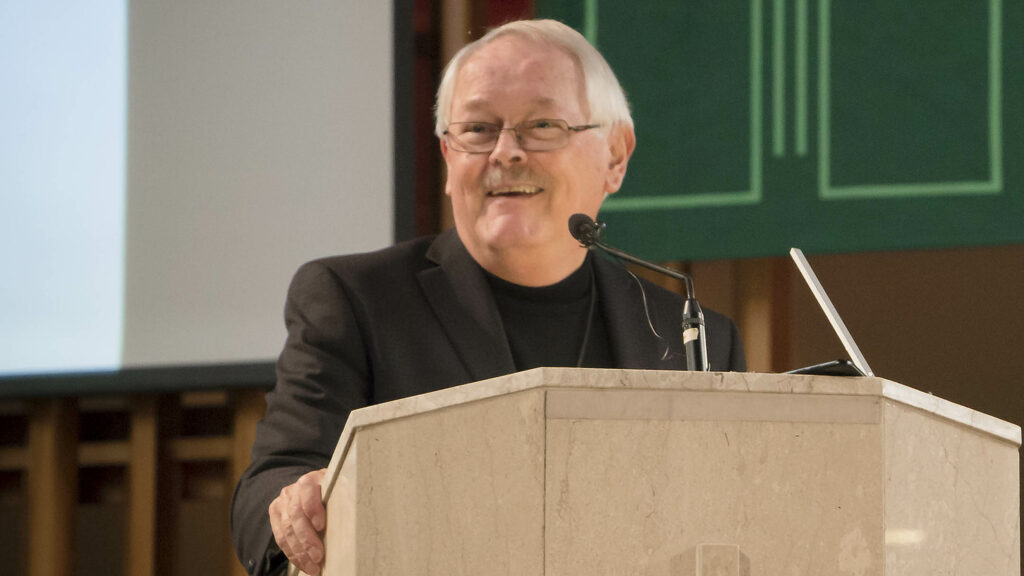No man is an island.
John Donne wrote those words four centuries ago and they are as true now as they were then, except we don’t believe them anymore.
Today more and more of us are beginning to define our nuclear families and our carefully chosen circle of friends precisely as a self-sufficient island and are becoming increasing selective as to who is allowed on our island, into our circle of friends, and into the circle of those we deem worthy of respect. We define and protect our idiosyncratic islands by a particular ideology, view of politics, view of morality, view of gender, and view of religion. Anyone who doesn’t share our view is unwelcome and not worthy of our time and respect.
Moreover, contemporary media plays into this. Beyond the hundreds of mainstream television channels we have to choose from, each with its own agenda, we have social media wherein each of us can find the exact ideology, politics, and moral and religious perspective that fosters, protects, and isolates our island and makes our little nuclear clique, one of self-sufficiency, exclusivity, and intolerance. Today we all have the tools to plumb the media until we find exactly the “truth” we like. We have come a long way from the old days of a Walter Cronkite delivering a truth we all could trust.
The effects of this are everywhere, not least in the increasingly bitter polarization we are experiencing vis-a-vis virtually every political, moral, economic, and religious issue in our world. We find ourselves today on separate islands, not open to listen, respect, or dialogue with anyone not of our own kind. Anyone who disagrees with me is not worthy of my time, my ear, and my respect; this seems to be the popular attitude today.
We see some of this in certain strident forms of ‘Cancel Culture’ and we see much of it in the increasing hard, inward-turned face of nationalism in so many countries today. What’s foreign is unwelcome, pure and simple. We will not deal with anything that challenges our ethos.
What’s wrong with that? Almost everything. Irrespective of whether we are looking at this from a biblical and Christian perspective or whether we are looking at it from the point of view of human health and maturity, this is just wrong.
Biblically, it’s clear. God breaks into our lives in important ways, mainly through “the stranger”, through what’s foreign, through what’s other, and through what sabotages our thinking and blows apart our calculated expectations. Revelation normally comes to us in the surprise, namely, in a form that turns our thinking upside down. Take for example the incarnation itself. For centuries people looked forward to the coming of a messiah, a god in human flesh, who would overpower and humiliate all their enemies and offer them, those faithfully praying for this, honor and glory. They prayed for and anticipated a superman, and what did they get? A helpless baby lying in the straw. Revelation works like that. This is why St. Paul tells us to always welcome a stranger because it could in fact be an angel in disguise.
All of us, I am sure, at some point in our lives have personally had that experience of meeting an angel in disguise inside a stranger whom we perhaps welcomed only with some reluctance and fear. I know in my own life, there have been times when I didn’t want to welcome a certain person or situation into my life. I live in a religious community where you do not get to choose who you will live with. You are assigned your “immediate family” and (but for a few exceptions when there is clinical dysfunction) like-mindedness is not a criterion as to who is assigned to live with each other in our religious houses. Not infrequently, I have had to live in community with someone who I would not, by choice, have taken for a friend, a colleague, a neighbor, or a member of my family. To my surprise, it has often been the person whom I would have least chosen to live with who has been a vehicle of grace and transformation in my life.
Moreover, this has been true for my life in general. I have often found myself graced by the most unlikely, unexpected, initially unwelcome sources. Admittedly, this has not always been without pain. What’s foreign, what’s other, can be upsetting and painful for a long time before grace and revelation are recognized, but it’s what carries grace.
That is our challenge always, though particularly today when so many of us are retreating to our own islands, imagining this as maturity, and then rationalizing it by a false faith, a false nationalism, and a false idea of what constitutes maturity. This is both wrong and dangerous. Engaging with what is other enlarges us. God is in the stranger, and so we are cutting ourselves off from a major avenue of grace whenever we will not let the foreign into our lives.

